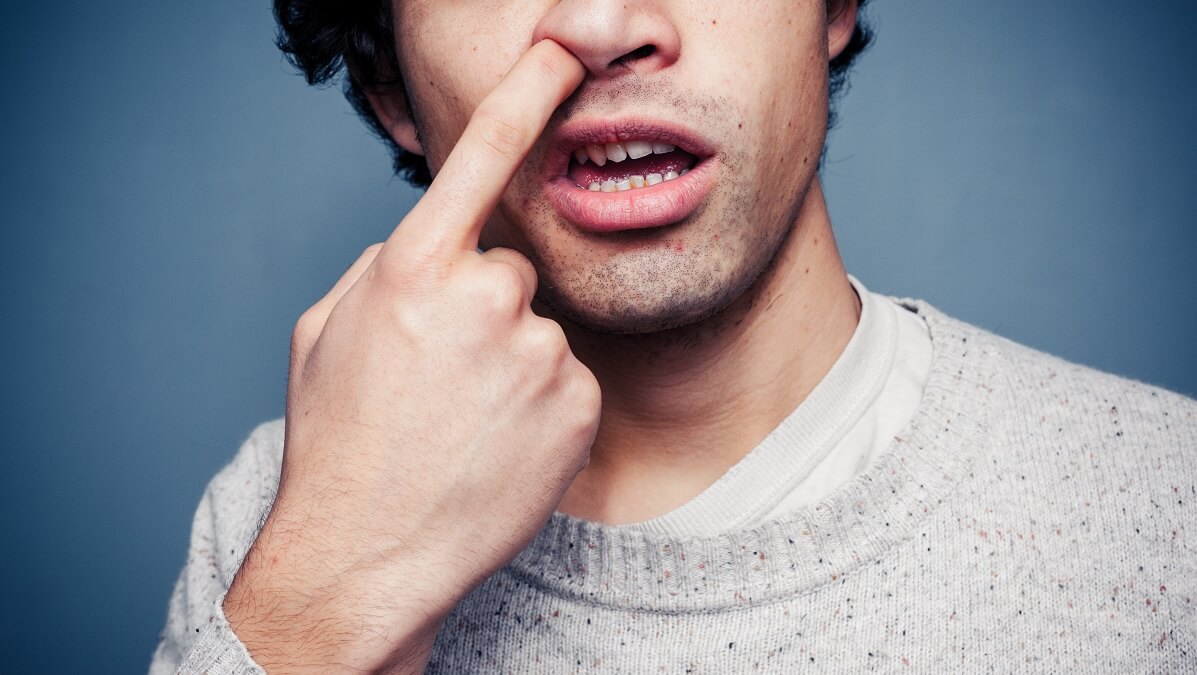Nobody wants to get caught picking their nose. But it’s not a bad way of removing unwanted ‘deposits’ when no-one is looking – is it?
It appears, sadly, that it might be. Nose picking, according to new research, is a potential gateway to Alzheimer’s disease.
The study, conducted by researchers at Griffith University in Queensland, was published earlier this year in the journal Nature under the title Chlamydia pneumoniae can infect the central nervous system via the olfactory and trigeminal nerves and contributes to Alzheimer’s disease risk.
That’s a rather long-winded way of saying that picking your nose opens the door for an infection that can indirectly lead to Alzheimer’s. That infection, as can be seen in the title, is Chlamydia pneumoniae, which can be introduced via a finger in the nose to your olfactory nerve.
Read: Single brain scan can diagnose Alzheimer’s disease
It’s not the infection that is the main problem, though, it’s what your body does in response to its presence.
According to the study, cells in the brain respond to the attack by depositing a protein known as amyloid beta protein, which is a known hallmark of Alzheimer’s.
Professor James St John, head of the Clem Jones Centre for Neurobiology and Stem Cell Research, a co-author of the world-first research, says: “We’re the first to show that Chlamydia pneumoniae can go directly up the nose and into the brain where it can set off pathologies that look like Alzheimer’s disease.”
“We saw this happen in a mouse model, and the evidence is potentially scary for humans as well,” he said.
Read: What your nose knows about potential friends before you do
The words ‘mouse model’ may lead you to pose two questions, the first of which is possibly, “Did the researchers observe mice picking their noses?”
While that might conjure up a mental image some think of cute and others disgusting, the mice were in fact administered the infection via the nose by humans.
A second, more serious question you might be inclined to ask is, “Just because it happens in mice, does it mean it will necessarily happen in humans?”
For those of you clinging to the hope that you can keep picking your nose with impunity (at least in private), the answer is ‘no’, but research on mice does regularly translate to humans.
Prof. St John, though, acknowledges that human trials will be needed to verify the theory.
Read: Common virus may be Alzheimer’s trigger
“We need to do this study in humans and confirm whether the same pathway operates in the same way,” he says.
It’s research that has been proposed by many people, but not yet completed. What we do know is that these same bacteria are present in humans, but we haven’t worked out how they get there.”
Putting a finger up your nose remains at the top of the suspect list, and is why it is strongly recommended that you don’t pick your nose. It is also why the medical fraternity recommends you don’t pluck your nose hairs.
Not only does the hair create a barrier of sorts against infection but the plucking process can damage the lining of the nose, opening the way for bacteria such as Chlamydia pneumoniae.
So the next time you feel your nose needs a bit of a cleanout, don’t pick. Pick up a tissue instead.
Are you a secret nose picker? Will this research make you give up the habit? Why not share your experience and thoughts in the comments section below?

